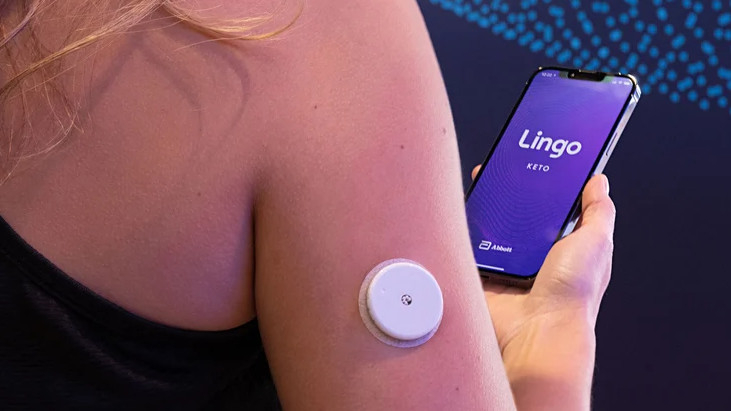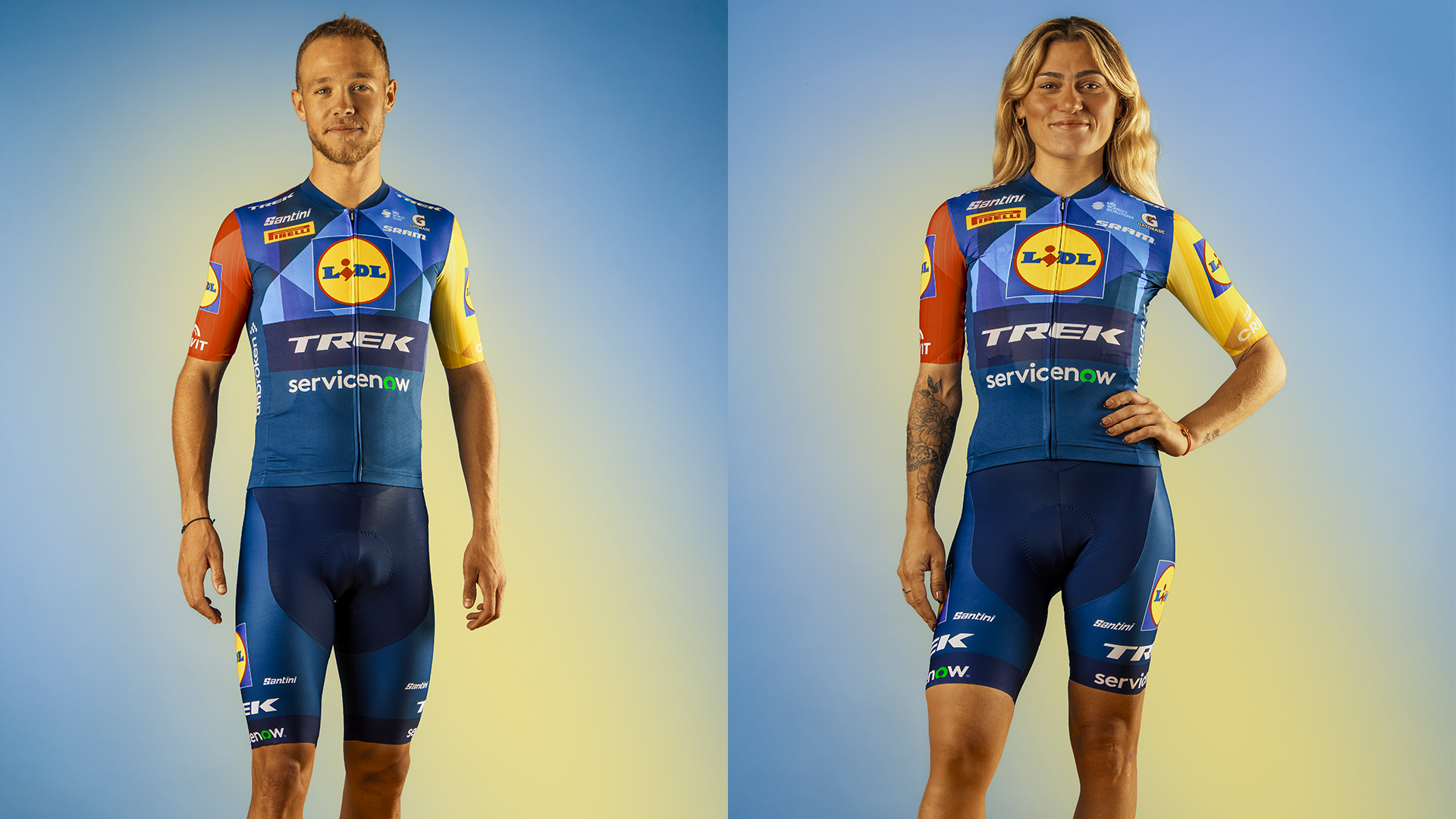Supersapiens supplier is working on a new sensor that monitors ketones, glucose, lactate and more
Abbott's new Lingo sensors could be a gamechanger for athletes but they're already banned by the UCI

Abbott, the brand that made its name in continuous glucose monitors for diabetics, recently unveiled a new product that, while not at all targeted to cyclists, should be of particular interest.
Under the sub-brand name of 'Lingo', Abbott is working on a new type of continuous monitor that will not only track glucose but also lactate, alcohol and cycling's latest buzzword, ketones.
It's not yet available to buy, but the company unveiled the Lingo brand at the Consumer Electronics Show in early January, and aside from coverage from a few technology-related sites such as our cousins over at Tech Radar, it's safe to say that the unveiling went somewhat under the radar.
When it launches, expected at some point in summer 2022, the product will be marketed as a consumer 'biowearable', focussed on the health and wellness sector, with its growing popularity of keto diets and the recent marketing buzzword 'biohacking', defined by Healthline as "making small, incremental diet or lifestyle changes to make small improvements in your health and well-being."
There is a distinct absence of detail about the new Lingo brand at this stage, but on face value, it - or at least the technology contained within - could yield numerous opportunities for elite athletes to track, monitor, and improve their performance.
For example, with the ability to track lactate, a rider should be able to accurately understand the wattage at which they convert from working aerobically to anaerobically, allowing them to train more efficiently. Pro cyclists commonly receive an 'ear prick' to test lactate when working with coaches and performance directors, as shown in this recent Instagram post by Michael Mørkøv.
A post shared by Michael Mørkøv (@michaelmorkov)
A photo posted by on
By wearing a monitor that measures lactate continuously throughout all efforts and all sessions, directors would theoretically be able to get a considerably better understanding of their riders' metabolisms, and they could see the data from anywhere in the world.
The latest race content, interviews, features, reviews and expert buying guides, direct to your inbox!
In addition, tracking glucose can give an idea of how well fuelled they are or whether the dreaded bonk is coming, and ketone levels should help riders understand whether or not they are in 'ketosis' which would, in turn, indicate whether they are burning fat or glucose. We'd hope nobody is drinking alcohol while cycling but, according to the Abbott website, it "could also be used one day to track alcohol levels."
Who is Abbott?
If you're not a diabetic, you'd be forgiven for not having heard of Abbott, but as a cyclist, you may have heard of continuous glucose monitoring.
Abbott's first breakthrough was with the Freestyle Libre sensor - a continuous blood glucose monitor that removed the need for regular finger-prick tests, using a small sticky plastic patch that is worn on the user's tricep. This would then use Bluetooth technology to share information with a smartphone app, to provide a continuous reading of the wearer's blood glucose levels and send alerts when outside the required parameters. It was a game-changer for diabetics.
It made its way into cycling courtesy of Supersapiens. Our Supersapiens review takes an in-depth look at the product, but put simply, it is a brand that leverages the Abbott Libre Sense Sport glucose sensor to help athletes to better fuel for workouts and races.
The brand's founder, Dr Phil Southerland, is a diabetic himself and has used iterations of the technology to lead a competitive sporting career. He is also one of the founders of Team Novo Nordisk, the UCI ProTeam outfit made up entirely of diabetic professional cyclists.
The technology was quickly adopted by numerous WorldTour teams including Ineos Grenadiers and Jumbo Visma. However, its rise to prominence was curtailed when the UCI updated its rules to ban the technology from in-competition use in 2021.
Devices which capture other physiological data, including any metabolic values such as but not limited to glucose or lactate are not authorised in competition.
UCI General rules: 1.3.006
The wording of this rule means it would apply to the new generation of monitors too since it isn't solely limited to glucose monitors, but it would still allow cyclists to use it out of competition.
There's no noise yet from Supersapiens on whether it will be adding Abbott's new technologies into its platform, but we will be sure to share anything as soon as we know. We will also be sure to try out the Lingo sensors when available to try and discern whether they are as useful in practice as they seem, and we'll be keeping an eye on the WorldTour's uptake of the technology. So watch this space, there's undoubtedly more to come on this subject.

Josh is Associate Editor of Cyclingnews – leading our content on the best bikes, kit and the latest breaking tech stories from the pro peloton. He has been with us since the summer of 2019 and throughout that time he's covered everything from buyer's guides and deals to the latest tech news and reviews.
On the bike, Josh has been riding and racing for over 15 years. He started out racing cross country in his teens back when 26-inch wheels and triple chainsets were still mainstream, but he found favour in road racing in his early 20s, racing at a local and national level for Somerset-based Team Tor 2000. These days he rides indoors for convenience and fitness, and outdoors for fun on road, gravel, 'cross and cross-country bikes, the latter usually with his two dogs in tow.
